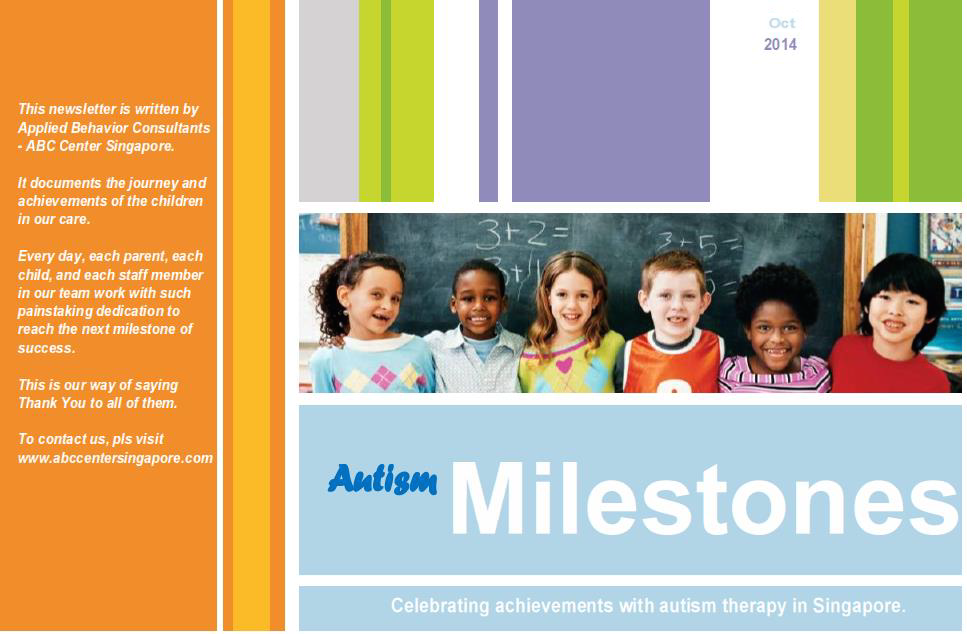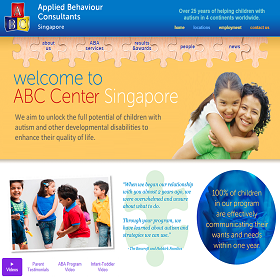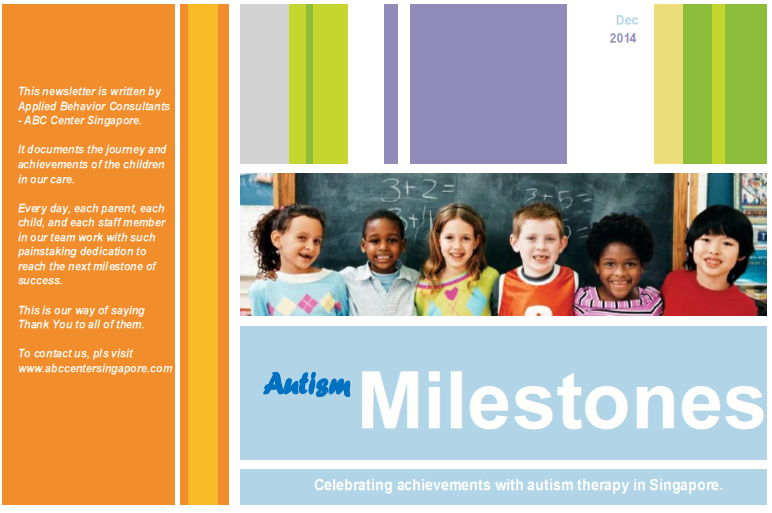
Parenting a child with autism is one of the most difficult and confusing roles in life. In this article, we give our best advice on what should and should not be done. (Portions of this newsletter are excerpts from an article published in Today’s Parents’ magazine (Aug/Sept 2011) written by Meryl Koh from her interview with Ms. Mari Ueda-Tao, MA, BCBA, Applied Behavior Consultants (ABC Center), USA’s Clinical Administrator for Northern California. These excerpts are in italics.)
Do seek professional advice immediately upon seeing ‘red flags’. Don’t ignore or avoid the issue.
It is sometimes easy to ignore warning signs. Some parents may justify it as ‘my child is still young, so let’s just wait and see’. Even worse, some parents may already have a gut feeling that something is wrong, but social pressure makes it difficult to accept this, and hence they avoid the issue.
Since early intervention is a critical part of success in autism therapy, the earlier you seek professional diagnosis an advise, the earlier you can start.
Don’t blame yourself.
 Learning that your child is autistic is traumatic for parents, and it’s easy for them to blame themselves or each other, either for producing ‘bad’ genes or for neglecting the child due to work commitments.
Learning that your child is autistic is traumatic for parents, and it’s easy for them to blame themselves or each other, either for producing ‘bad’ genes or for neglecting the child due to work commitments.
However, parents need to realize that they are not to blame. “Nothing could have changed the situation,” says Mari. Autism is a developmental disorder, and while scientists are still researching its cause, the claim that “Refrigerator Mothers” (coined by Bettelheim in the 1950s to describe mothers who neglected their children) were to blame for their child’s autism has been proven false.
Instead, parents should look towards playing a supportive role that can empower them in aiding their child, rather than blame themselves.
Do your research on the best kind of therapy for your child (and start it quickly).
There is a lot of literature on autism therapy. ABC Center focuses on Applied Behavior Analysis (ABA) therapy. It is the only method with 50 years of clinically proof. The US Surgeon General has validated this therapy autism. It is better to go with the method that is clinically proven, as you don’t want to waste your child’s precious time. If you decide to go for ABA therapy, ensure that whoever manages your child’s clinical program is a Board Certified Behavior Analyst (BCBA). There are only a handful of BCBA’s who live in Singapore and ABC Center Singapore is fortunate to have several BCBA’s on site everyday who provide supervision of the children in our care. This is the reason why our results show 100% of children at ABC Center make progress.
 Do ensure consistency of approach in your home and in therapy. For instance, if you know that your child is already able to do a task during therapy (for example, he can already feed himself), be consistent and expect him to do this even at home. Resist the temptation to do the opposite (eg. spoonfeeding him at home) as this discourages his learning. Talk to your Behavior Analyst about what specific tasks and behaviors you need to do to ensure consistency.
Do ensure consistency of approach in your home and in therapy. For instance, if you know that your child is already able to do a task during therapy (for example, he can already feed himself), be consistent and expect him to do this even at home. Resist the temptation to do the opposite (eg. spoonfeeding him at home) as this discourages his learning. Talk to your Behavior Analyst about what specific tasks and behaviors you need to do to ensure consistency.
Don’t ‘give in’ to tantrums and behaviour excesses. Having a child with autism throw a tantrum is extremely stressful. As a result, many parents just ‘give in’, sometimes to very unreasonable situations, just to avoid it. However, this is not the best for the child’s learning.
Mari mentions three possible functions behind a child’s behaviour: to get access to something; to escape or avoid something; and automatic reinforcement. Once these functions are identified, the behaviour analyst can then devise ways to correct the behaviour.
For example, a child yelling and hitting himself and refusing to get in the car to go to school could be a way for them to try to escape or avoid going to school. Mari recommends that, instead of giving in to them and allowing them to stay home, one should try an alternative response such as giving the child an extra five minutes before having to get into the car. Instead of throwing a tantrum, children are taught to voice their feelings such as “I need more time” or “I don’t want to”, eventually working towards them understanding that sometimes some things just have to be done.
Don’t rearrange your whole life around your child. Mari shares one of her cases. The family had an eight year old autistic daughter, and had re-arranged their lives around her. They ate when she was hungry and slept when she was tired. They even planned detours in order to avoid driving past any McDonald’s outlets as the girl would always throw a tantrum and demand to eat at McDonald’s each time she saw the sign. A typical 10-minute drive to school, therefore, ended up taking half an hour instead. The parents had two other typically developing children as well, but everyone traded on eggshells around the eight-year-old.
……Mari set up a routine for them to follow, and for their daughter to get used to. Together, they wrote out ideal situations and what their child was to learn by following the routine, in order to build her tolerance and increase her participation across their daily routines. Mari then devised a reinforcement system, where she promised the little girl the chance to play with her treasured DS game if she could go past a McDonald’s without crying or throwing a tantrum.
“It was difficult initially. I had to soothe the parents, who were naturally concerned about her reaction, and at the same time calm the child down and remind her of her reward if she succeeded,” shares Mari. It took at least five to six tries before she successfully went past a McDonald’s without throwing a tantrum. Subsequently, she learnt to be more independent and could go past the fast-food outlet without creating a fuss anymore.
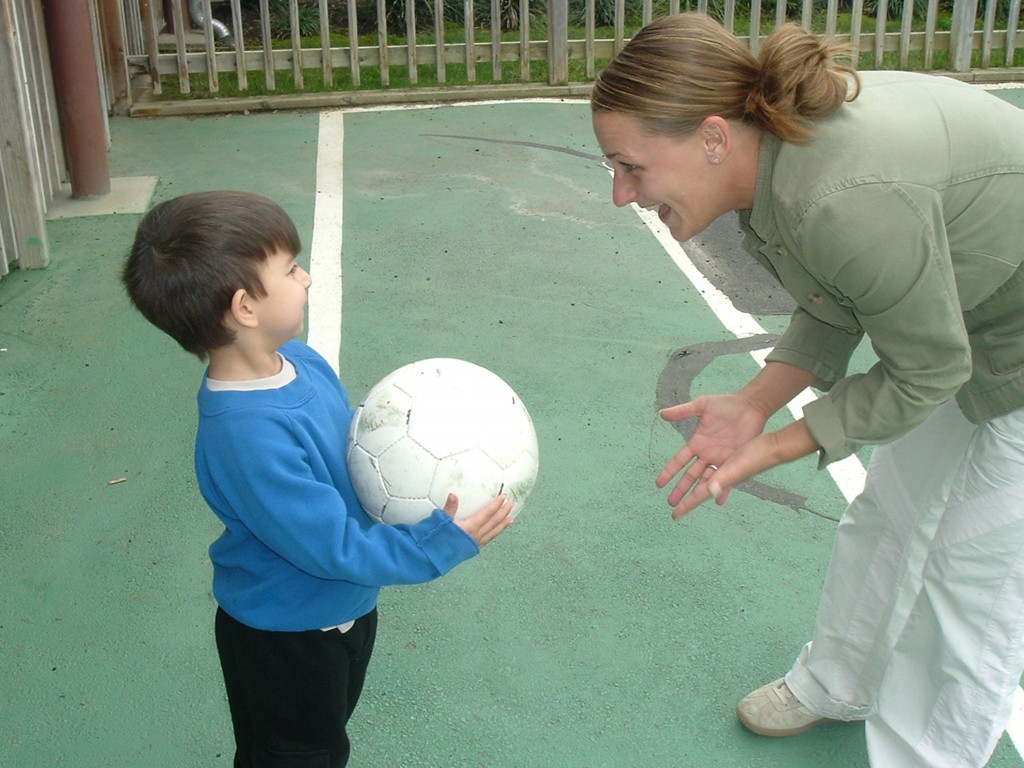 Do have open discussions with your child’s behavior analyst. Explain your desired goals and how you believe your child is progressing. It is important for you to have good communication with your child’s behaviour analyst. Therefore, choose a provider where it is easy to speak regularly with them (without having to pay ‘extra’ every time you talk with them). Be open about what you want to achieve so that you can jointly plot out how to progress. Update them on what is happening at home. In this way, you can help your child in a coordinated way.
Do have open discussions with your child’s behavior analyst. Explain your desired goals and how you believe your child is progressing. It is important for you to have good communication with your child’s behaviour analyst. Therefore, choose a provider where it is easy to speak regularly with them (without having to pay ‘extra’ every time you talk with them). Be open about what you want to achieve so that you can jointly plot out how to progress. Update them on what is happening at home. In this way, you can help your child in a coordinated way.
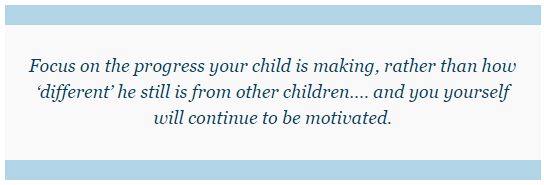 Do learn to reinforce positive behavior. We believe it is important to continually reinforce (give positive praise or reward to) a child when he or she does something positive, rather than focusing on the negative behavior. This is the easiest way to encourage the child to keep learning. Parents need to consistently do this at home. For example, saying ‘I like the way you’re walking’ would be more encouraging than exclaiming ‘DON’T RUN!’
Do learn to reinforce positive behavior. We believe it is important to continually reinforce (give positive praise or reward to) a child when he or she does something positive, rather than focusing on the negative behavior. This is the easiest way to encourage the child to keep learning. Parents need to consistently do this at home. For example, saying ‘I like the way you’re walking’ would be more encouraging than exclaiming ‘DON’T RUN!’
Do be patient and stay positive yourself. The journey for a child (and the parents) regarding autism is not easy. It entails a lot of hard work and patience. Don’t be discouraged. Focus on the progress your child is making (rather than on how ‘different’ he still is from other children). Each child will progress on his own pace, but there will definitely be progress. Focus on this, and you yourself will continue to be motivated.
ABC CENTER SINGAPORE is part of the global network of Applied Behavior Consultants – a global entity that has been serving children with autism for over 25 years in 4 continents worldwide. Our early intervention services include 1 on 1 ABA therapy , Infant/Toddler 1on1 ABA Program, well as our EarlyPreps group preschool program.
Our EarlyPreps group preschool is the only ABA-based program within the Singapore MSF PPIP program where Singaporean/PR children who meet requirements may apply for financial subsidy.
To contact ABC Center (Applied Behavior Consultants) Singapore, please see www.abccentersingapore.com or call (65) 94236248
BACK TO ABC CENTER SINGAPORE HOME PAGE


